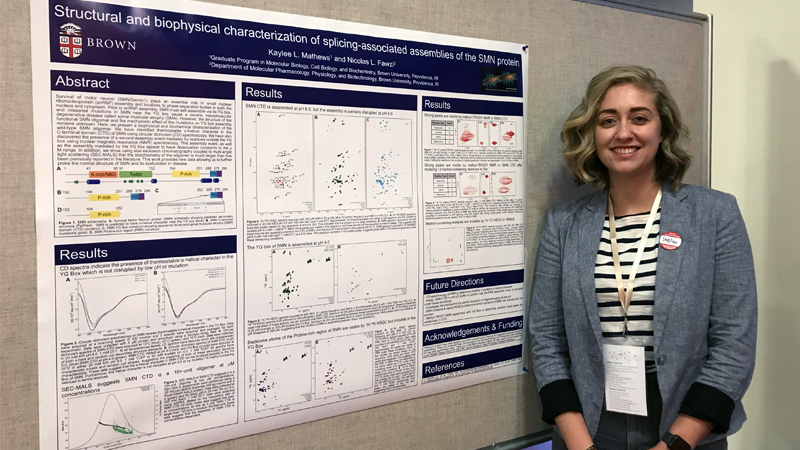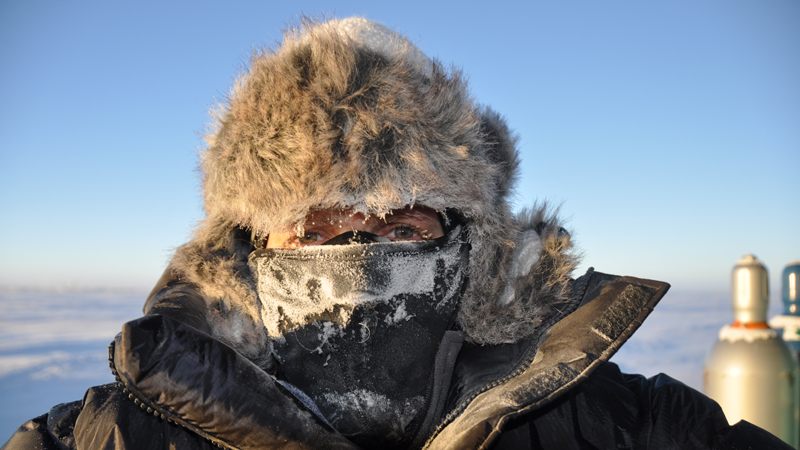Science Exploration


Science Exploration
- RIT /
- Rochester Institute of Technology /
- Academics /
- Science Exploration
Request Info about undergraduate study
Visit
Apply
Integrated Sciences Academy
Take up to a year to explore RIT’s portfolio of science programs before deciding on a major.
90%
Exploration students
11
Bachelor programs
4
Years to graduation
Overview for Science Exploration
- An in depth exploration program where you can experience everything from environmental science to bioinformatics to physics to imaging science.
- Design a first-year project to explore how science can be applied to modern-day challenges. Recent topics included climate change, concussions in sports, and travel to Mars.
- Learn to conduct research using real-world instrumentation and lab skills.
- Course work completed in the exploration program is applied to your new program of study.
Do you know that you love science or math, and you know that you want a career in a related discipline but are not sure which area is your favorite, or how to choose a major that will get you to your career goals? You’re not alone. Many prospective students love science and math, but may not have enough information to decide about a major before starting college. For example, do you know the differences between degrees in biotechnology and biochemistry or applied math and computational math? The science exploration option allows students to investigate the various majors in the College of Science and options for multidisciplinary science/math and careers before deciding on a program of study. Students who choose their major within the first year will not lose time toward the completion of their degree.
You will work as a member of a team on a laboratory-based project that requires you to apply many disciplines in the College of Science – and you will gain experience in all of those areas, helping you to find a career path that is right for you. Over two semesters, you will not only learn about the different majors available to you in the college, but you will also learn to work together to solve multidisciplinary problems as part of a team, how to manage a project from start to finish, and develop leadership skills. Together with your team, you will present your year’s work at the annual Imagine RIT event in April.
Plan of study
The science exploration option is a yearlong sequence of courses built around a single project aimed at designing, building, and conducting multidisciplinary research to answer a question that is too complex for a single discipline to conquer. The question will be presented to you on the first day of class. This approach to multidisciplinary technical education emphasizes real-world, hands-on problem solving by student-led teams. It offers participating students a degree of autonomy and responsibility rarely found in first-year curricula.
As a result of this course sequence, students in the science exploration option develop an appreciation for specific fields that interest them, while simultaneously learning about other College of Science majors.
This program is no longer accepting new student applications.
Featured Profiles
From Science Exploration to Brown University Researcher
Kaylee Mathews ’16 (science exploration/biochemistry)
Kaylee Mathews ’16 discovered the exciting world of research during her year in RIT’s Science Exploration program. Kaylee recently earned her Ph.D. at Brown University.
Science Exploration and Discovering What You Love
Heather Moe ’08 (biology)
Since leaving RIT, Heather Moe ‘08 (biology BS) has traveled the world and experienced a variety of jobs related to science. She discovered science exploration before and after graduation helped...
Curriculum for 2023-2024 for Science Exploration
Current Students: See Curriculum Requirements
Science exploration option, typical course sequence
| Course | Sem. Cr. Hrs. | |
|---|---|---|
| INTS-151 | Integrated Science I Consider how an organism moves through its environment: you may think about the biology of the organism, the physics behind moving appendages, the chemistry of muscle contractions, or mathematical models to describe the motion. Science is inherently integrated and interdisciplinary. This is the first semester interdisciplinary sciences course that highlights key, interdisciplinary topics that are taught in other courses, like biology, chemistry, physics, math, and statistics, and expands your working knowledge of the sciences. (Prerequisites: ASTP-660 or equivalent course.
Co-requisites: PHYS-612 and ASTP-610 or equivalent courses.) Lecture 3 (Fall). |
3 |
| INTS-152 | Integrated Science II Look at the current problems facing humanity: health, pollution, climate change, clean energy to name a few. None of these problems will be solved by a single person with mastery of a single STEM discipline. Solutions to these problems will be discovered by teams of researchers (biologists, chemists, physicists, mathematicians, and imaging scientists) working together. Science is inherently integrated and interdisciplinary. This is the second semester interdisciplinary sciences course that presents elements of biology, chemistry, mathematics, statistics, and physics in a practical, integrated, application-based context. (Prerequisites: INTS-151 and INTS-155 or equivalent course. This class is restricted to SCIEXP-UND students.
Co-requisites: INTS-156 or equivalent course.) Lecture 3 (Spring). |
3 |
| INTS-155 | Integrated Science II Lab This is a project-based lab course spanning multiple topics and disciplines as students develop basic laboratory skills. This is the corresponding lab course for the first semester interdisciplinary science course that presents biology, chemistry, mathematics and statistics, and physics using themes that are tightly integrated with the co-requisite lecture course. The lab sessions will provide experiences that reflect real-world approaches to science in the 21st century. (Prerequisites: This class is restricted to SCIEXP-UND students.
Co-requisites: INTS-151 or equivalent course.) Lab 3 (Fall). |
1 |
| INTS-156 | Integrated Science II Lab Science is inherently integrated and interdisciplinary. This is the corresponding lab course for the first semester interdisciplinary science course that presents biology, chemistry, math, and physics using themes that are tightly integrated in the equivalent lecture courses. Students will work on projects that span multiple topics and disciplines as they develop basic laboratory skills. The lab sessions will provide experiences that reflect real-world approaches to science in the 21st century. (Prerequisites: INTS-151 and INTS-155 or equivalent course. This class is restricted to SCIEXP-UND students.
Co-requisites: INTS-152 or equivalent course.) Lab 3 (Spring). |
1 |
| YOPS-010 | RIT 365: RIT Connections RIT 365 students participate in experiential learning opportunities designed to launch them into their career at RIT, support them in making multiple and varied connections across the university, and immerse them in processes of competency development. Students will plan for and reflect on their first-year experiences, receive feedback, and develop a personal plan for future action in order to develop foundational self-awareness and recognize broad-based professional competencies. (This class is restricted to incoming 1st year or global campus students.) Lecture 1 (Fall, Spring). |
0 |
General Education - Mathematical Perspective A: Calculus Sequence |
3 | |
General Education - Mathematical Perspective B: Calculus Sequence |
3 | |
General Education- Natural Science Inquiry Perspective: Laboratory Sequence† |
4 | |
General Education- Scientific Principles Perspective: Laboratory Sequence† |
4 | |
General Education Curriculum* |
3 | |
| UWRT-150 | General Education - FYW: Writing Seminar Writing Seminar is a three-credit course limited to 19 students per section. The course is designed to develop first-year students’ proficiency in analytical and rhetorical reading and writing, and critical thinking. Students will read, understand, and interpret a variety of non-fiction texts representing different cultural perspectives and/or academic disciplines. These texts are designed to challenge students intellectually and to stimulate their writing for a variety of contexts and purposes. Through inquiry-based assignment sequences, students will develop academic research and literacy practices that will be further strengthened throughout their academic careers. Particular attention will be given to the writing process, including an emphasis on teacher-student conferencing, critical self-assessment, class discussion, peer review, formal and informal writing, research, and revision. Small class size promotes frequent student-instructor and student-student interaction. The course also emphasizes the principles of intellectual property and academic integrity for both current academic and future professional writing. Lecture 3 (Fall, Spring, Summer). |
3 |
| Total Semester Credit Hours | 28 |
|
Please see Wellness Education Requirement for more information. Students completing bachelor’s degrees are required to complete two different Wellness courses.
* Please see General Education Framework for more information.
† Students must choose one of the following laboratory sequences: General Biology I (BIOL-101), General Biology I Lab (BIOL-103), General Biology II (BIOL-102), and General Biology II Lab (BIOL-104); General and Analytical Chemistry I (CHMG-141), General and Analytical Chemistry I Lab (CHMG-145), General and Analytical Chemistry II (CHMG-142), and General and Analytical Chemistry II Lab (CHMG-146); or University Physics I (PHYS-121) and University Physics II (PHYS-122).
Latest News
-
October 5, 2021
![student and professor in a lab.]()
International students who started at RIT remotely during the pandemic continue to thrive
More than 200 international students began their studies at RIT remotely in fall 2020, including 65 undergraduate students and 159 master’s students. RIT Admissions officials said the students have done remarkably well given the challenging circumstances, and 83 percent of those students are now studying at RIT’s campus in Henrietta.
-
February 11, 2020
![]()
Student to Student: Chiral resolution of cyclopropyl esters
During his time in the Science Exploration program, Noah Gubernick participated in an experiment that explored the potential formation of amino acids on ancient Mars which helped him discover his passion for chemistry and experimental design.
-
July 3, 2017
![Portrait of Sophia Maggelakis]()
RIT launches Integrated Sciences Academy
The Integrated Sciences Academy in RIT’s College of Science will bring together researchers with different expertise to invent new ways to approach challenges facing a global society.
















